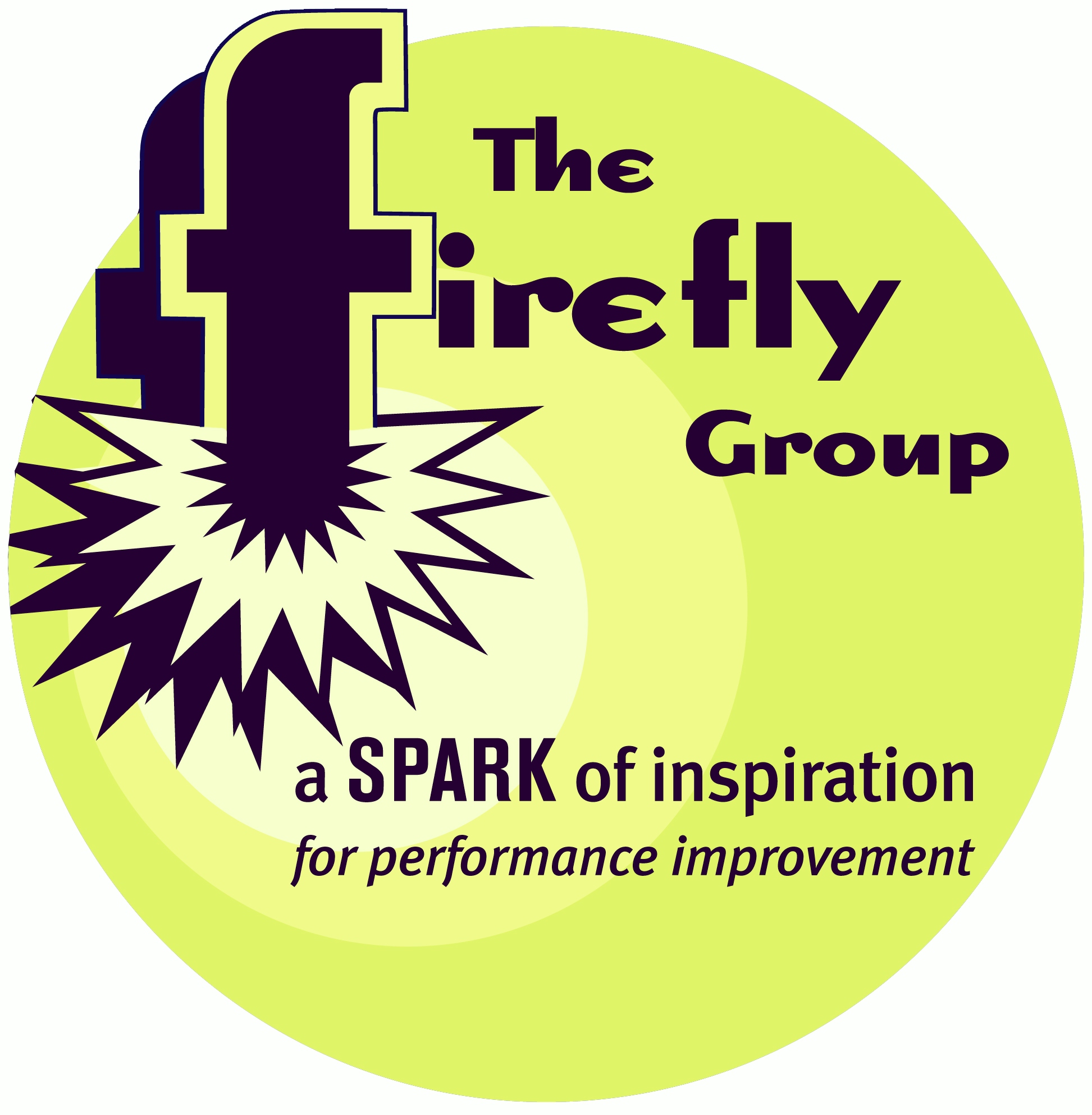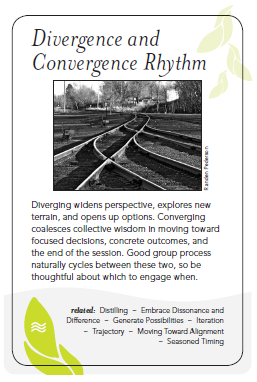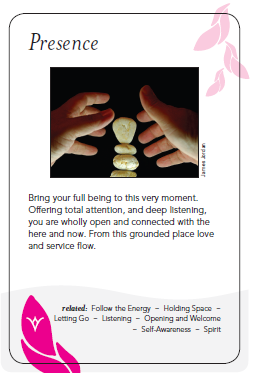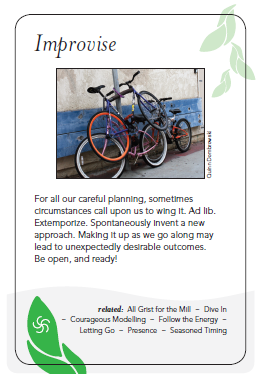

Of Note...
Brian Remer Receives Award for Lifetime Achievement. Read about it here:
What We Do
The Firefly Group helps people connect their everyday tasks with a bigger, wider sense of purpose and meaning. After working with Firefly, people are energized to attain the mission of their organization and they have a specific action plan to help them achieve their goals.
We do this through leadership development, performance improvement training, strategic planning, and clarification of organizational mission and vision. Our methods are engaging, thought-filled, and results-oriented.
 If
this sounds like a good direction for your organization, let's talk about
how we might collaborate! Please give me a call (802.257.7247) or send an
. - Brian
If
this sounds like a good direction for your organization, let's talk about
how we might collaborate! Please give me a call (802.257.7247) or send an
. - Brian
Where Can You Catch The Firefly Group?
North
American Simulation & Gaming Association (NASAGA),
Columbus
November 7 - 10
Keynote
Presentation,
Game Design Certificate Program Leader
 Your ETR (Estimated Time to Read): 10 minutes Your ETII (Estimated Time to Implement Ideas): 5 weeks |
Special Events:
Thiagi in New York City
Sivasailam "Thiagi" Thiagarajan will present "Interactive Techniques for Instructor-Led Training " on October 30, 2012. In the morning session of this two-part workshop, you will learn how to design a variety of effective and engaging training activities. In the afternoon, you will learn how to conduct these activities to ensure the recall and application of new skill and knowledge. Click HERE to read the brochure. To register for this one-day event visit thiagi.com .
NASAGA's 50th Anniversary Conference in Columbus, OH
Register now for the next conference of the North American Simulation and Gaming Association November 7 - 10, 2012. NASAGA is the best kept secret resource for all trainers interested in interactive learning.Spend quality time with leading practitioners in an intimate setting. Every session is hands-on; no big boring sessions listening to powerpoint presentations in dark auditoriums. This will be a very special conference that celebrates 50 years of simulations and games for learning. 24 breakout sessions, three keynotes, two game night activities, and one amazing alternate reality experience.
Early bird registration ends August 4 and you can save an additional $10 when you sign up through PayPal!
October 2012
|
Say
It Quick |
Discoveries bits of serendipity to inspire and motivate |
Ideas fuel for your own continuous learning |
Activities tips and tricks you can try today |
| Great Groups | Group Works Deck | Multiple Facilitators |
Successful group facilitation depends as much on attitude as technique as we'll learn in this issue of the Firefly News Flash beginning with this story in exactly 99 words.
Great Groups
Andy is a wonderful musician, teacher, and storyteller. He teaches in schools, calls at square dances, leads choral groups, and plays a mean accordion. What Andy doesn't realize is that he's an expert at fostering teamwork. He has the ability to lead without being in charge - even though he's the "director."One comment while leading a choir of novice singers summarizes his philosophy. He said, "Here's how you harmonize. Listen to the person next to you and sing something a little different." One objective but each contributes uniquely.
Whether musicians, teams, families, or communities, great ones harmonize.
 Group
Works Deck
Group
Works Deck
The Group Pattern Language Project
Want to sharpen your facilitation skills? Need a quick idea to untangle a tough group? Trying to analyze why that last meeting nearly went up in smoke?
You can find answers to these challenges and many others in the Group Works Deck. The result of a three-year collaborative project, the Group Works Deck is a stack of 91 cards that highlight major concepts or "patterns" relevant to the facilitation of meetings. Each color-coded card describes one pattern with a picture, a brief description, and a list of related patterns. Those patterns include such concepts as Ritual, Feedback, Playfulness, Power Shift, Shared Airtime, Generate Possibilities, and Silence.
To make learning and conceptualizing these patterns easier, the creators have divided the 91 patterns into nine categories:
1. Intention
2. Context
3. Relationship
4. Flow
5. Creativity
6. Perspective
7. Modeling
8. Inquiry & Synthesis
9. Faith
These categories represent important skill areas for facilitators. As the guidebook accompanying the Deck explains, "Each category represents a group need addressed by that set of patterns." Facilitators can use the cards to learn more about the art of facilitation and to reflect upon their responsibility to help a group achieve its goals while maintaining an unbiased stance.
The Deck was developed by facilitators interested in fostering dialogue that expands the democratic process, citizen involvement, and participation among people with opposing viewpoints. But the patterns are useful for anyone charged with keeping a group on track while including all voices. If you'd like to maximize participation in your next meeting and increase ownership of the outcome, you'll find inspiration and ideas with these cards.
Learn more at http://www.groupworksdeck.org/ where you can buy the cards and guidebook or, even better, download a free PDF of both and become a better facilitator immediately.
 The
Philosophical Facilitator
The
Philosophical Facilitator
The September issue of the Firefly News Flash featured the latest work of
David Kolb who has developed an assessment to identify various roles of educators.
The major roles include that of Facilitator, Expert, Evaluator, and Coach.
At various times, educators need to play all these roles to ensure the Experiential
Learning Cycle is completed by each student.
Many of us find ourselves playing one of these roles whether or not we are an educator by profession. Managers, team leaders, department supervisors, human resource managers, and others in organizations are often called upon to be educators - without the title. Similarly, these same people convene meetings to share information, make decisions, evaluate projects, and plan for the future. In these situations, they become facilitators charged with managing the group while also having responsibility for the outcome of its work.
Just as it's helpful for educators to consciously choose which role they are playing, it's also beneficial for group facilitators to be intentional about what they are doing. Too often, meetings just "happen." We're lucky if something productive results. But why leave the outcome up to chance - especially when time and talent have been invested?
Having a goal for a meeting is essential but it's also important to have a specific process in mind for achieving that goal. Deliberately decide how to lead a group at a particular moment and you'll expand the group's chances for success. To do this, you'll have to know your own intentions as the facilitator. Are you interested in a shared decision by group members? Are you striving for consensus? Are you concerned about rivalries and politics? Are you striving for creativity? And how impartial do you need to be?
These questions only scratch the surface of what it means to facilitate a group. Many volumes provide thoughtful answers and the Group Works Deck, because it is so concise, is one that is particularly accessible.
 Multiple
Facilitators
Multiple
Facilitators
The booklet that accompanies the Group Works Deck describes nearly a dozen
suggestions for using the cards. The book explains both individual and group
activities that develop facilitator competencies.
The multiple responsibilities of a facilitator don't all have to be done by one person. Why not share responsibility for the group's success with each member? Here's one way to do that.
Identify various facilitator tasks and write one each on a slip of paper. Tasks might include time keeper, gatekeeper, agenda monitor, recorder, summarizer, inquirer, and process observer. Ask each person to select a paper at random then challenge them to be the person who makes sure that facilitation task is used during the meeting.
For an added twist, have people keep their task a secret while making sure it is used to create a positive meeting. At the end of the meeting, let people guess who was using which facilitator task. Follow up by giving everyone a chance to provide a self-assessment of their performance as both a group participant and a group facilitator.
The responsibilities of a facilitator can be challenging. So, why force one person to sing solo when you've got a whole room full of vocalists? As in the 99-Word Story, good groups harmonize. If your group is making beautiful music, please . I'd like to hear it!
|
Whether you need a keynote speaker, or help with strategic planning, performance improvement, or training facilitators and trainers in your organization, I look forward to your call (802.257.7247) or . -- Brian |
Read previous
issues. Click Library!
To add or delete your name to our mailing list, email
with a short note in the subject line.
I want this newsletter to be practical, succinct, and thoughtful. If you have suggestions about how I can meet these criteria, please let me know! Send me an with your thoughts and ideas.
Home
| Services
| Products
| Mission
| Ideas |
The Group
| The Buzz
(c)
2012 The Firefly Group